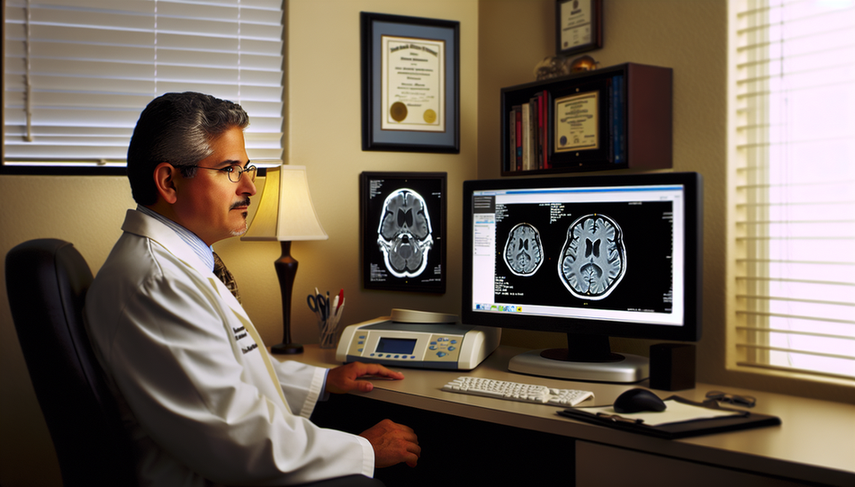Alzheimer's Diagnosis: Cognitive Assessment with MMSE and Neuroimaging Techniques

The Alzheimer's disease is one of the leading causes of dementia worldwide, affecting millions of individuals. The Alzheimer's diagnosis is a complex process that requires a combination of cognitive assessment and advanced neuroimaging techniques. Early identification of this disease is crucial for implementing treatment strategies that may slow its progression.
Cognitive Assessment and Neuroimaging Techniques
Cognitive assessment is an essential component in the diagnosis of Alzheimer's disease. Tools such as the Mini-Mental State Examination (MMSE) and the Montreal Cognitive Assessment (MoCA) are widely used to evaluate cognitive decline in patients suspected of having Alzheimer's. These tests measure memory, attention, language, and other cognitive functions, providing a foundation for clinical diagnosis [1].
Regarding neuroimaging, magnetic resonance imaging (MRI) and amyloid PET are fundamental techniques. MRI allows for the observation of structural changes in the brain, such as hippocampal atrophy, which is an early marker of the disease [2]. On the other hand, amyloid PET is crucial for detecting the accumulation of beta-amyloid plaques, a hallmark of Alzheimer's pathology [3]. These techniques not only assist in diagnosis but are also useful for monitoring disease progression and evaluating treatment efficacy.
Recently, deep learning models have been developed that integrate neuroimaging data and cognitive assessments to improve diagnostic accuracy. These models have shown to be comparable to the diagnostic precision of experienced neurologists and neuroradiologists [4]. Additionally, research into cerebrospinal fluid and blood biomarkers, such as circulating microRNAs, is ongoing to provide less invasive and more accessible diagnostic methods [5].
Conclusions
The diagnosis of Alzheimer's disease greatly benefits from the combination of memory tests and advanced neuroimaging techniques. The integration of these tools allows for a more accurate and early identification of the disease, which is essential for effective patient management. As technology advances, we are likely to see greater integration of artificial intelligence and innovative biomarkers in the diagnostic process, thereby enhancing physicians' ability to treat this devastating disease.
Referencias
- [1] Mini-Mental State Examination and Montreal Cognitive Assessment as Tools for Following Cognitive Changes in Alzheimer's Disease Neuroimaging Initiative Participants.
- [2] Imaging Techniques in Alzheimer's Disease: A Review of Applications in Early Diagnosis and Longitudinal Monitoring.
- [3] Neuroimaging biomarkers in Alzheimer's disease and other dementias.
- [4] Multimodal deep learning for Alzheimer's disease dementia assessment.
- [5] Beyond CSF and Neuroimaging Assessment: Evaluating Plasma miR-145-5p as a Potential Biomarker for Mild Cognitive Impairment and Alzheimer's Disease.
Created 2/1/2025
